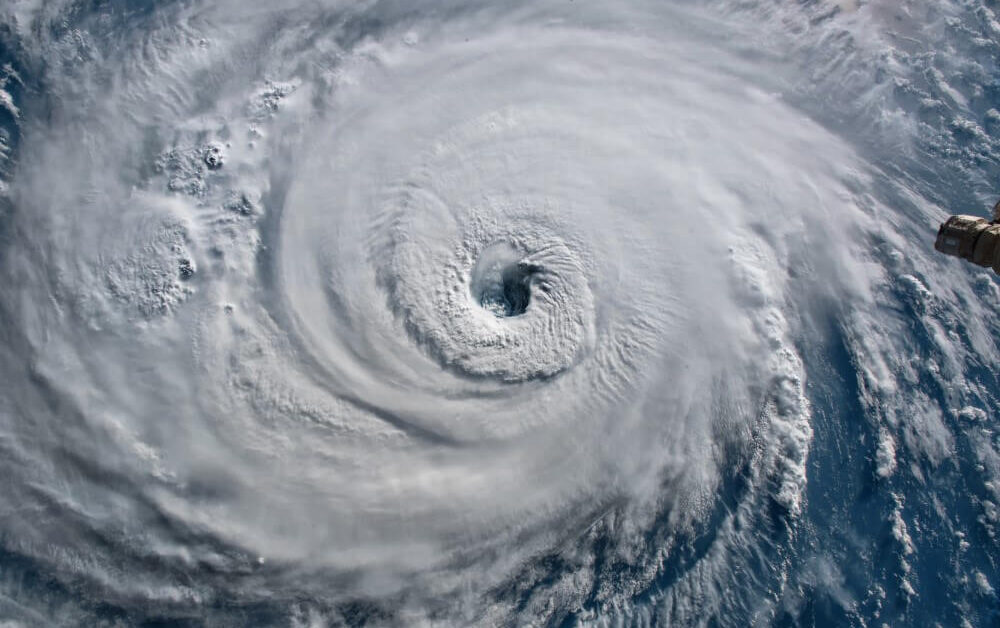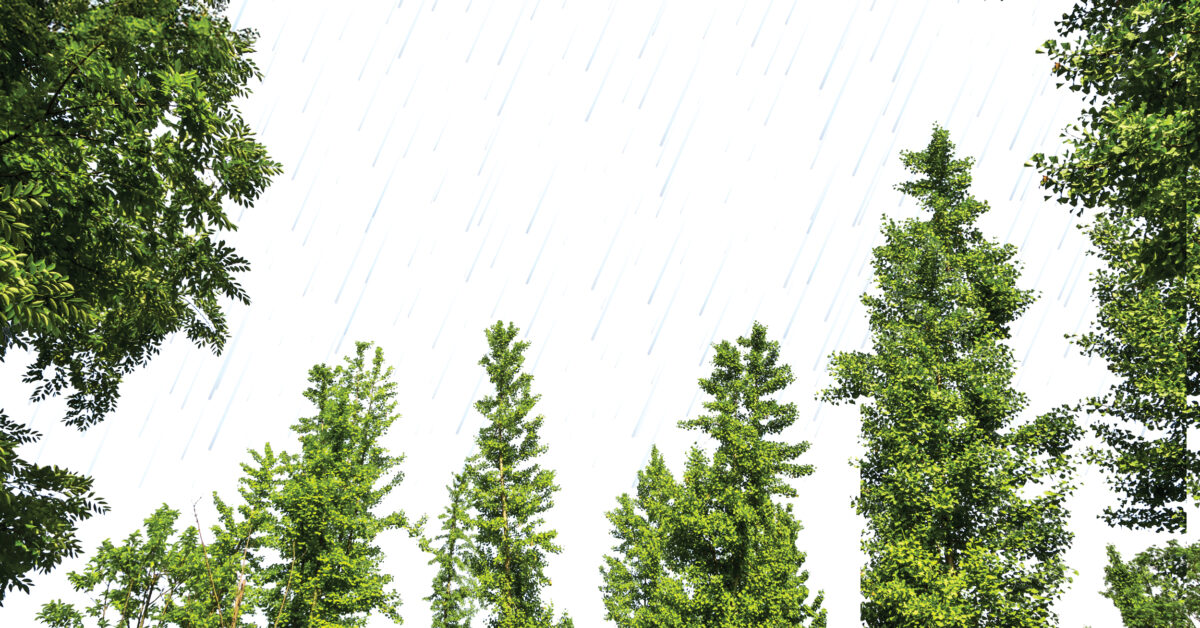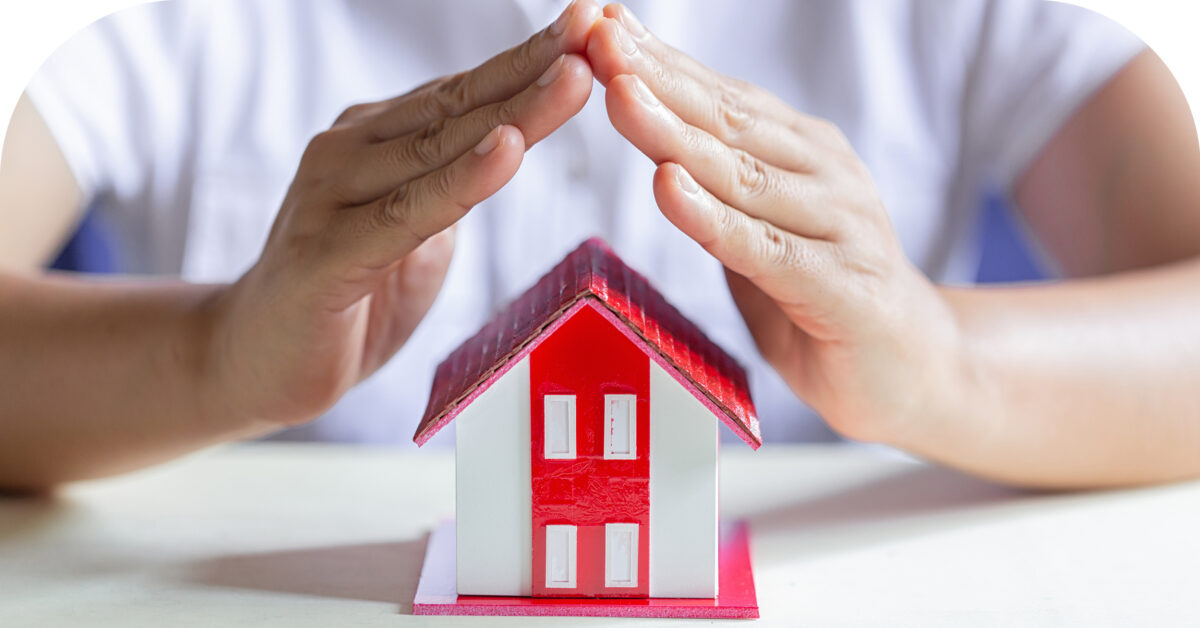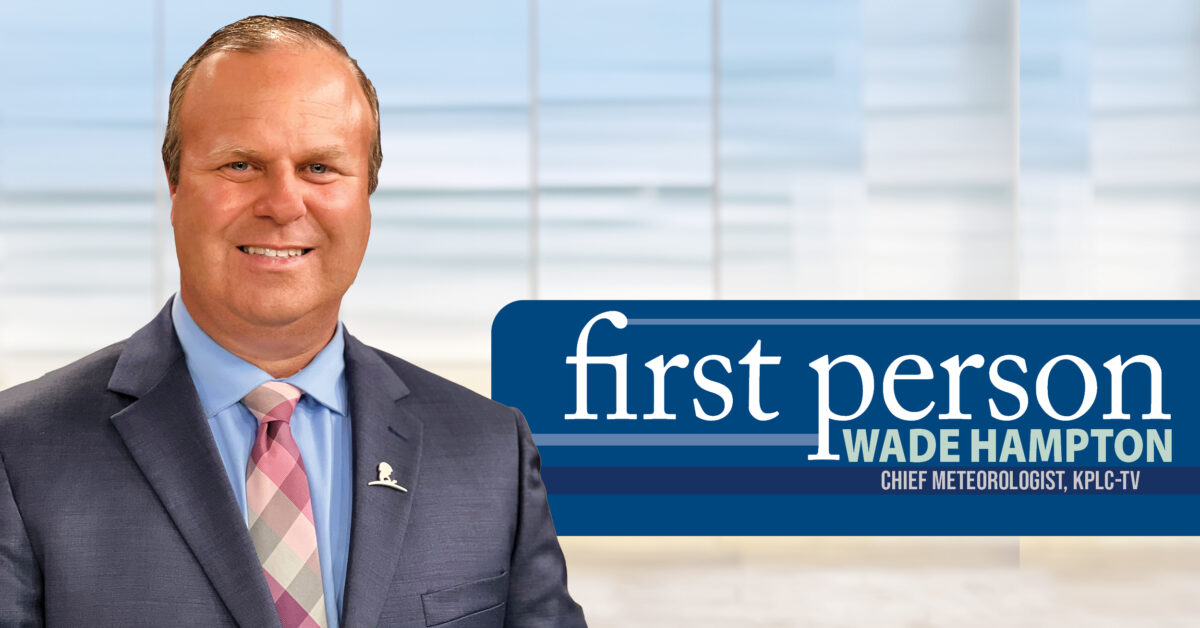
Cowboy Closet Will Help McNeese Students Dress for Success: Clothing Donations Now Being Accepted
June 2022
Real Estate Guide
June 20222022 Hurricane Season Preparation is Essential
The 2022 hurricane season is fast approaching, and it looks to be another active one. Many of the indicators that help predict the number of storms we’ll see are pointing to 2022’s hurricane season being the seventh consecutive busier-than-normal season. The Hurricane season of 2020 taught us in tragic, tangible ways the importance of being prepared BEFORE a storm is even found in the Gulf. Meteorologists expect an above-average hurricane season for 2022, so we need to be proactive.
What are the early season projections saying?
Dr. Phil Klotzbach and his team at Colorado State University recently issued their pre-season forecast – 19 named storms, nine hurricanes and four major hurricanes. All of those predictions are above the 30-year averages of 14, seven and three, respectively.
We are coming off a very busy 2021 hurricane season. Some 21 named storms formed last year; seven of those became hurricanes, with four reaching major hurricane strength – Grace, Ida, Larry and Sam.
Their rationale for predicting above-normal activity is that La Niña conditions will transition to neutral by late summer into the fall. They also noted warmer than normal sea surface temperatures in the subtropical Atlantic and Caribbean Sea. Temperatures are also normal to slightly above in the broader Atlantic Ocean, all which likely indicate an active season. It is worth a reminder that the 2020 and 2021 seasons were quite active and exhausted the initial name lists consecutively for the first time on record.
2022 Hurricane Names
- Alex
- Bonnie
- Colin
- Danielle
- Earl
- Fiona
- Gaston
- Hermine
- Ian
- Julia
- Karl
- Lisa
- Martin
- Nicole
- Owen
- Paula
- Richard
- Shary
- Tobias
- Virginie
- Walter
A Resilient Grid for Resilient Communities
The past two hurricane seasons have proven that Louisiana is being impacted by more frequent and stronger systems. This state is home to incredibly resilient communities, and its residents deserve an electrical grid that is as resilient as they are.
Entergy Louisiana is fully committed to meeting that demand for a more reliable and robust power grid. Not only is this important for the near term, but to ensure that future generations thrive on the Gulf Coast.
It remains to be seen what the 2022 hurricane season will bring forth, but the company has taken steps to ensure that whatever the weather may bring, it is prepared to respond as quickly and as safely as possible.
Entergy has made significant upgrades over the past few years, including spending billions on upgrading transmission infrastructure, outpacing the national average. New poles are also being put into place that meet a higher standard. Class-1 poles can withstand much higher winds, up to 150 mph, and have been proven to fare well in hurricanes.
In Southwest Louisiana in particular, Entergy Louisiana has upgraded a substantial portion of its transmission infrastructure following Hurricane Laura. A new substation was also constructed in Calcasieu Parish, helping bolster reliability to thousands of customers in the Gillis, Moss Bluff and north and east Lake Charles areas.
The $24 million project will make the local system stronger in the face of severe weather and help keep power flowing.
Electricity is critical in the recovery process following hurricanes. Although no system is bulletproof and completely immune to Mother Nature, Entergy Louisiana is doing all it can to ensure power is delivered to communities in the wake of weather events.
What can customers do to prepare alongside Entergy?
Have a plan in place well ahead of storms making landfall. In fact, the time to prepare for a significant event is now, including making a kit that is equipped with first aid supplies, important phone numbers and phone chargers. Customers can also help by trimming trees and shrubs away from their homes.
Safety is also key. Immediately following a storm can be the most dangerous part of the event. Customers should avoid downed power lines, keep their distance from lineworkers as they begin to move in, and use generators according to all manufacturer guidelines.
More safety and preparation information can be found at entergynewsroom.com/storm-center/.
Entergy Louisiana urges customers to join in by being storm ready. The company is proud to serve communities in Southwest Louisiana and is committed to not only increasing the resilience of the power grid, but also to being there when severe weather rolls through.
Hurricane Preparation for your Workplace: Offsite Document Storage Can Help You Get Back to Business Quickly
by Tori Hebert
You have probably already developed an emergency plan with your family for your home, but do you have one in place for your office? While hurricane season officially started June 1, the risk of a major storm is typically late summer and early fall. That gives you ample time to put a plan in place, if you haven’t already, to protect your important business records from storm damage, as well as ensure access to these documents during an extended evacuation or in the event your office space is damaged.
To prepare your business for continued success after a storm, having a disaster recovery plan that includes arrangements for business continuity is critical. These risk management strategies are designed to restore your business functions after a disaster and during recovery efforts, including the capability to communicate with your staff and clients and have access to important information, such as client files, financial records, human resource records, back-up copies and other business documents.
Setting up secure, offsite storage for important business documents will enable you to get back to the business of your business quickly after a disaster, “After a natural disaster, your first priority is making sure your loved ones are safe, and then checking on the condition of your home. For business owners and managers, the next priority is checking on the status of their place of business,” says Marwa Vicknair, co-owner of Reliable Document Storage & Shredding, a locally owned, full-service records and information management company. “We can take some of the burden off your mind by providing a secure storage location for your sensitive, critical business material. Even if your business sustains damage, you’ll have the peace of mind of knowing that the documents you need for your business to function are safe, secure and easily accessible.”
Everyone in Southwest Louisiana has experienced the effect of water damage and long-term power outages on living and office spaces. “Physical and electronic files can be damaged when exposed to warm, humid temperatures of south Louisiana,” says Vicknair. “That’s why our climate-controlled facility is fully equipped to keep your materials protected from wind, rain, heat and water damage.”
In addition to secure, protected offsite storage, Reliable’s barcode system allows clients to track what records are in storage and where they are located, which makes it easy to quickly retrieve what you need when it’s needed. “Reliable’s organized system will allow you to access files and work with your clients remotely even if you can’t immediately return to your office,” explains Vicknair.
“Hopefully, our region won’t experience a storm like those in 2020 again for many years, but we all understand that a natural disaster is not a matter of if, but rather when,” adds Vicknair. “The best way to protect your business is to have an emergency plan in place so you can serve your clients when they need you the most. Reliable can help you achieve your business continuity goals from anywhere at any time.”
Reliable Document Storage & Shredding is located at 2925 Industrial Avenue in Lake Charles. For more information, call (337) 307-5327 or visit www.rdssnow.com.
Southwest Call Center Keeping the Lines of Communication Open in the Aftermath of Disaster
by Angie Kay Dilmore
In times of catastrophe, Southwest Call Center serves as a vital link between clients and their customers.
When a community experiences a devastating event such as a hurricane that disrupts the nature of their lives in most every way, it is critical for business owners to establish and maintain communications with their customers, vendors and/or patients. “With Southwest Call Center (SCC), businesses can provide services with no interruption and keep customers informed of the progress of recovery,” says Celia Vincent Broussard, President of Southwest Call Center.
Established in 1993, Southwest Call Center offers a wide variety of services to their clients that go above and beyond the scope of the typical answering service. In emergency situations such as natural disasters, when businesses and medical offices are unable to open their offices, SCC steps up their services to an even greater level. Southwest Call Center becomes the first point of contact for their customers. “Patients need prescription refills, appointments need to be rescheduled, and homeowners call building contractors, HVAC, electricians, and plumbers to schedule repairs,” says Broussard. “We answer the calls so businesses can provide services even as they begin their own recovery processes.”
Broussard says Southwest Call Center acts as a support center to emergency response teams to help facilitate the transmittal of community notifications regarding food and shelter to the public, media notifications as received from local government officials, and general media calls to first responder teams. Their agents also receive and relay requests per first responder team members to secondary support entities that provide critical services, such as environmental cleanups.
“We take disaster events very seriously and we understand our ability to operate during these times is critical to the success and continuation of our clients’ businesses,” adds Broussard. “With our redundant network, we have procedures in place that ensure continued operations during the event of a disaster. We review, test and update, as necessary, these processes several times a year. ”The ability to stay in touch with customers helps protect a business’s bottom line. With a staff of 25 trained professionals and open 24/7, Southwest Call Center currently serves hundreds of clients in ten states across the country. Their benefits and services include:
- Lower employee costs. Businesses save money when they use SCC as their primary answering point. SCC’s costs are based upon actual time working on accounts – answering, screening and dispatching calls – so non-productive time is absorbed by SCC.
- Reduced operational costs. SCC reduces a client’s overhead expenses associated to administrative personnel. Office space is freed up for other functions and equipment costs are lowered.
Improved employee productivity. Managers, supervisors and senior employees spend less time managing people and more time providing the services their customers expect.
- Alert Notification Service
- Appointment Confirmation Service
- Event Registrations
- Job Hotline
- Medical Answering Service
- Meeting On-Demand Conferencing Service
- Property Management Services
- Tech Support/Customer Service Hotline
- Virtual Receptionist/Telephone Answering Service
- Voice Broadcast Service
- Voice Mail Service
- Wake Up/Reminder Service
Hurricane Prep Hurricane Help When You Need It
The Hurricane season of 2020 taught us in tragic, tangible ways the importance of being prepared BEFORE a storm is even found in the Gulf. Meteorologists expect an above-average hurricane season for 2022, so we need to be proactive. These lists can help you prepare for a storm and arm you with resources you may need after a storm.
Be Prepared by Packing an Emergency Supply Kit
One of the first things on your hurricane prep to-do list, even before a storm looms in the Gulf of Mexico, is to assemble an emergency supply kit; something you can grab and go, if need be. A basic emergency kit could include the following items:
Food and Water:
- One gallon of water per person per day for at least three days
- At least a three-day supply of non-perishable foods
- Pet food
- Manual can opener
Tools and Maintenance items:
- Flashlight(s) and extra batteries
- Basic tool kit including wrench or pliers for turning off utilities, if necessary
- Dust mask to help filter contaminated air
- Plastic trash bags
- Plastic sheeting and duct tape to shelter-in-place
Personal Items:
- Moist towelettes, toothpaste, personal hygiene products
- Glasses and contact lenses
- Sleeping bag for each person
- At least one complete change of clothing for each person
Miscellaneous items:
- Copies of important papers such as insurance documents, medical forms, and IDs
- Paper, pencils and pens
- NOAA weather radio with tone alert (and extra batteries)
- Whistle so you can signal for help if stranded
- Maps of the local area
- Inverter or solar charger to keep mobile phones charged
- Cash or travelers’ checks
- Books, games and playing cards
First Aid Kit:
- Latex or other sterile gloves
- Sterile dressings to stop bleeding.
- Cleansing agent/soap and antibiotic towelettes
- Antibiotic ointment
- Burn ointment
- Adhesive bandages in a variety of sizes
- Eye wash solution to flush the eyes or as general decontaminant
- A thermometer
- Prescription medications you take every day (periodically rotate medicines to account for expiration dates)
- Prescribed medical supplies such as glucose and blood pressure monitoring equipment and supplies
- Scissors and tweezers
- Petroleum jelly or other lubricant
- Non-prescription drugs: aspirin or non-aspirin pain reliever, anti-diarrhea medication, antacids, laxatives.
Plan your Evacuation
If a hurricane is predicted to be severe, an order to evacuate may be given. Please heed these directives for your own safety. Before the storm makes landfall, follow these steps to plan ahead for your evacuation strategy:
- Know the local hurricane evacuation route(s). Plan your route but have alternative routes in mind in case of road closures. If you don’t have a vehicle, contact family, friends, your local government, or aid agencies to make other arrangements.
- Plan where you might stay. Do you have friends or family outside the evacuation zone who may be able to accommodate you? Hotels are another option, but make a reservation as early as possible, as they can fill up quickly.
- Collect copies of important papers such as medical insurance cards, homeowner’s insurance policy, emergency contact information in a gallon Ziploc bag and take them with you.
- Pack paper maps in case you lose your phone signal or you run out of battery life.
- Make considerations for your pets. Will you take them with you, leave them with someone else, or board them at a kennel? Please do not abandon your pets. Take pet food and vet contact info with you.
- Contact your local emergency management agency for more information.
Prep your Property
Whether you shelter in place or evacuate, your home will need some simple preparation to help protect it from hurricanes and their aftermath.
- Cover all your home’s windows with plywood or permanent hurricane shutters to protect your windows from high winds and flying debris. You can pre-cut the plywood in fair weather and store it off the ground in a shed, crawl space or attic until needed.
- Remove any loose items in your yard that could potentially become projectiles, such as potted plants, lawn furniture, and toys.
- Trimming trees and shrubs away from your house helps make them more wind resistant and lessens the likelihood of them damaging your house.
- Keep gutters and drain pipes unclogged and clear of debris.
Last-Minute Preparations
If a storm is imminent in the next 24-48 hours and you’ve done little prior preparation, don’t panic. Here’s your last-minute list.
- Track the storm path and projected risk areas at http://www.nhc.noaa.gov/. Monitor weather conditions with a battery-powered NOAA weather radio to receive the most up-to-date information, including forecasts, watches, or warnings.
- Turn your refrigerator to its coldest setting and keep it closed, so the food won’t spoil quickly if you lose electrical power.
- Bring all lawn furniture, outdoor decorations, trash cans, hanging plants (and anything else that could be picked up by the wind) inside. Anchor objects that cannot be brought inside.
- Fill up your bathtub, sinks and other large containers with fresh water. This will serve as an important reserve should you be without running water after a storm.
- Make sure all your family vehicles have at least a half-tank of gas, as filling stations may be closed or unable to pump gas during power outages.
Special Considerations for Apartment Dwellers
There are multiple steps those living in apartment can take in order to be prepared for when a hurricane strikes.
- First, talk to building management about an evacuation plan, including how to get out and where to go.
- Losing power and access to elevators is a big danger, especially for high-rises – so stock up and food and water for a few days, in case you can’t get out. Have extra batteries too for phones and electronics.
- Up high, wind is the enemy of course. Bring in outdoor furniture, lock your windows – and stay away from them.
Emergency Phone Numbers and Resources:
- In an emergency situation, always call 911
- 211 Helpline – Information from the United Way of SWLA
- Office of Homeland Security and Emergency Preparedness — 337-721-3800
- Louisiana Attorney General Hurricane Hotline – 1-866-351-4889
- LA State Police Troop D – 337-491-2511
- Calcasieu Parish Sheriff’s Office – 337-491-3600
- Road Closure Hotline – 1-800-469-4828
- American Red Cross — http://www.redcross.org
- FEMA – http://www.fema.gov
- LA Department of Children & Family Services — http://www.dss.state.la.us
- LA Department of Transportation — http://www.dotd.louisiana.gov
- LA Department of Health & Hospitals — http://www.dhh.state.la.us
- National Weather Service Southern Region — http://www.srh.noaa.gov
- Utilities:
- Entergy — 1-800-ENTERGY
- Beauregard Electric – 1-800-367-0276
- CenterPoint Energy — 1-800-477-0177
Restore Louisiana
Struggling to get your storm-damaged home repaired? The Restore Louisiana Homeowner Assistance Program may be able to help.
The Restore Louisiana Homeowner Assistance Program invites homeowners impacted by Hurricanes Laura and Delta to complete a brief survey on the damage to your home. You can take the survey on any mobile device at restore.la.gov or if you need assistance, by calling (866) 735-2001 from 8:00 a.m. to 5:00 p.m., Monday through Friday. A survey guide along with a brief video are available on the website to provide a helpful overview to assist you in completing the survey.
If you sustained major/severe damage as determined by FEMA from Hurricanes Laura and Delta, you are strongly encouraged to complete the survey, which is the first step in registering for program assistance. The survey should take about 15 minutes to complete and does not require any documentation to be submitted. However, these items are needed to complete the survey:
- Must have a working email address or mobile device that receives texts
- FEMA Registration Number(s) for disasters that damaged your home
- Hazard/Flood Insurance Provider and Policy Number (if applicable)
Information you provide in your survey will help the program to continue analyzing unmet needs, and qualified applicants will be invited by the program to submit a full application when the program fully launches, which should be sometime this summer. The survey is free and there is no deadline set for completing the survey.
After you complete the initial program survey, the program will begin to provide periodic text and/or email updates regarding program launch, application availability, and any next steps required. All information you provide in your initial survey will be verified by the program during the application process to determine final eligibility.
If you are not sure whether you sustained major/severe damage from Hurricanes Laura or Delta, please contact FEMA at 800-621-3362.






